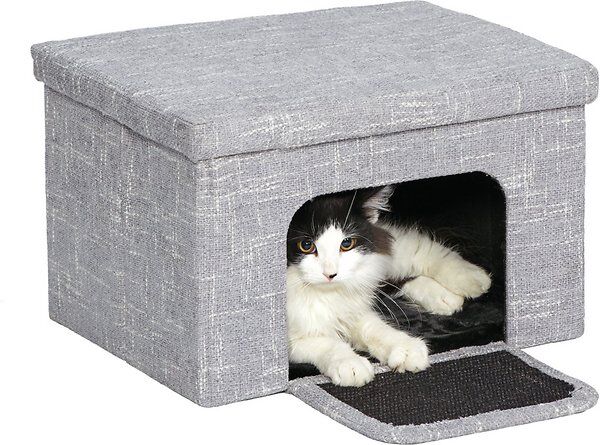July 4th kicks off the start of summer celebrations, including loud and scary fireworks. Dogs and cats react to fireworks – some get very scared with loud noises while others aren’t affected by explosions.
Some animal get so nervous with things like fireworks or thunderstorms that they panic and may even try to jump through closed windows or bolt through doors to get away from the noise and lights.
American pet advocacy groups point out that the number of escapees is so high that July 4th is the busiest day of the year in shelters with that many pets getting lost, injured, and killed. You should know which clinics or emergency hospitals will be open during fireworks season, in case you need one.

We recommend not leaving your pet home alone during fireworks events. That’s not always feasible, so think ahead before leaving them alone.
Signs of anxiety can include pacing, trembling, panting, drooling, attention-seeking (vocalizing, pawing, nuzzling, and climbing on people), hiding, and bolting. Escape attempts tend to involve hiding behind furniture, and staying in a basement or bathroom.
Because the source of the noise is confusing, inside dogs may want to escape to the outside, and outside dogs may be frantic to get inside.
Nervous pets tend to drink more water, so keep more available than usual. (And remember, these summer events usually mean hotter weather, and the likelihood of power problems, so extra water is already a good idea.) Bring outside pets inside, so they can’t bolt.
Keep your cats securely inside, and if your dog needs a potty break during the fireworks, take him outside on a leash, even in a fenced yard. Make sure all your pets are wearing an ID tag or a collar that contains your phone number. Tags and collars can be lost, so a microchip is even more useful in helping you find your lost pet.
Drug-Free Solutions

What can you do to keep your nervous pet safe and calm? For many frightened pets, just staying in a familiar crate or in a “safe” room with a closed door is all that’s needed.
Synthetic pheromone sprays such as Feliway for cats and Adaptil (formerly called D.A.P.) for dogs are available at pet stores. These sprays imitate the properties of the natural pheromones of the lactating female that gives kittens or puppies a sense of well-being.
The plug-ins take 24 hours to build a high enough concentration in your home to be effective. So start 1-2 days before known stressors.
An herbal relaxant called Composure comes in chews or liquid for dogs; the feline version is in chews.
If you can plan ahead for these summer events, veterinary behaviorists often recommend behavior modification, classical counter conditioning, and teaching a desirable coping response.
In behavior modification, controlling the intensity of the fireworks is necessary and often the most challenging part. While it often isn’t possible to expose a fearful dog to only “little fireworks,” controlling other factors can help.
Distance from the fireworks can be less intimidating, as would be keeping the dog indoors. Music may disguise the bursts of noise; consider loud music with a regular beat.
Classical counter conditioning can create a positive association with fireworks if the anxiety isn’t extreme. Give high-value food rewards (canned food or peanut butter), offer your pet his favorite toys or food puzzle toys, or have your pet practice his tricks with you. The goal is for him/her to learn that fireworks result in highly pleasant rewards.
You can teach a desirable coping response. The appropriate response for a dog or cat facing something frightening is to retreat to a safe place until the frightening thing ends.
Providing a safe retreat, such as a crate, a box a cat tree or structure with a covered space will give security and confidence, although selecting the location is up to the pet.
Please remember that hiding is not a sign of a problem, if the pet quickly returns to a normal behavior when the fireworks are over. It is a way for your animal companion to cope!
Medication

It’s easier to prevent a fearful reaction than it is to reverse one. If your pet is nervous around loud, unexpected noises, a short-term sedative before the fireworks start may be just the ticket.
Talk to your veterinarian ahead of time, so you can have something on hand to give your pet before the noise begins.
Several medications are used for fireworks or thunderstorm phobias in dogs; however, do not use any of your own prescriptions because the dosage may be harmful.
Some severely anxious pets may benefit from drugs (clomipramine, fluoxetine, or trazodone) that increase the level of serotonin. Trazodone may start working within a few hours, but its effect varies, so you should test it with your dog before the fireworks season starts.
Xanax can be very helpful for dogs if given 1-2 hours before the scary stimuls. Cats may benefit from drugs like Gabapentin, buprenorphine and drugs like mirtazipine – the latter by increasing serotonin along with appetite.
The other drugs can take several weeks, if not more, to build up to an effective level, so they are not a spur-of-the-moment fix.
You have many choices of how to help your pet cope with fireworks stress. Talk to your veterinarian about what is best for your pet. Hopefully, everyone in the family will then be able enjoy the holiday!


